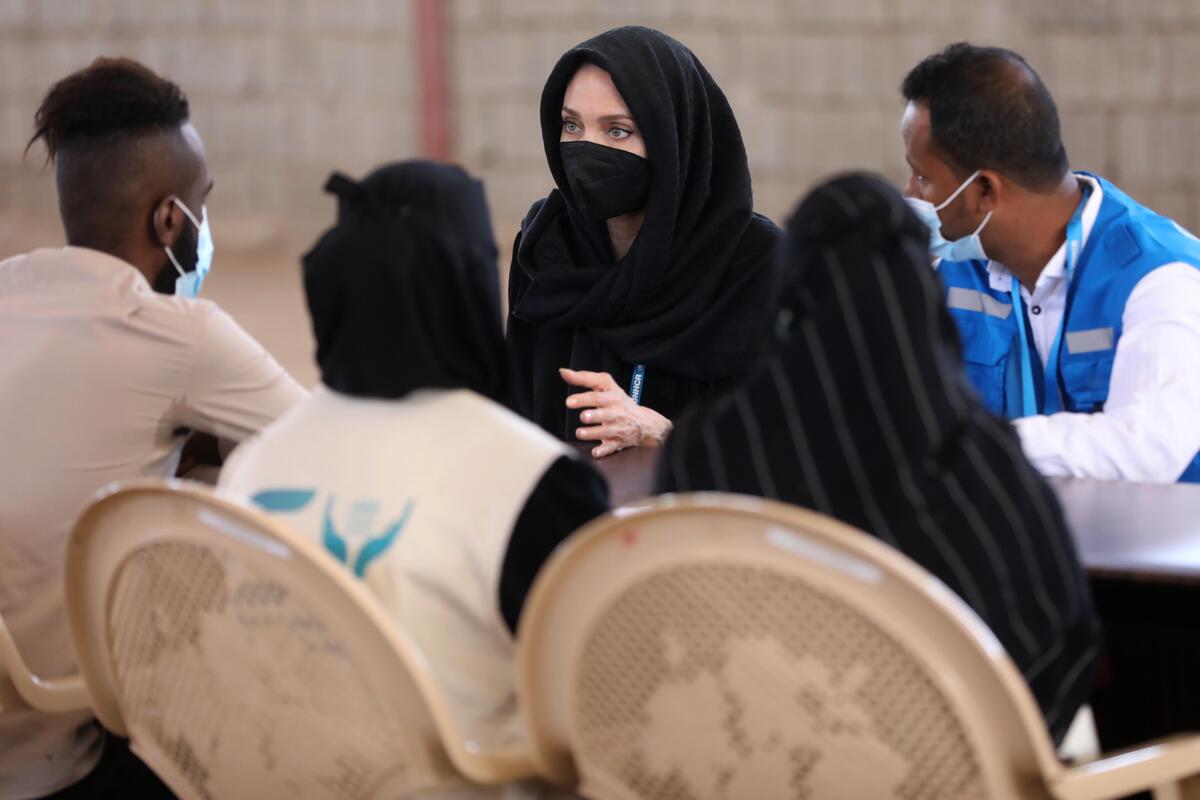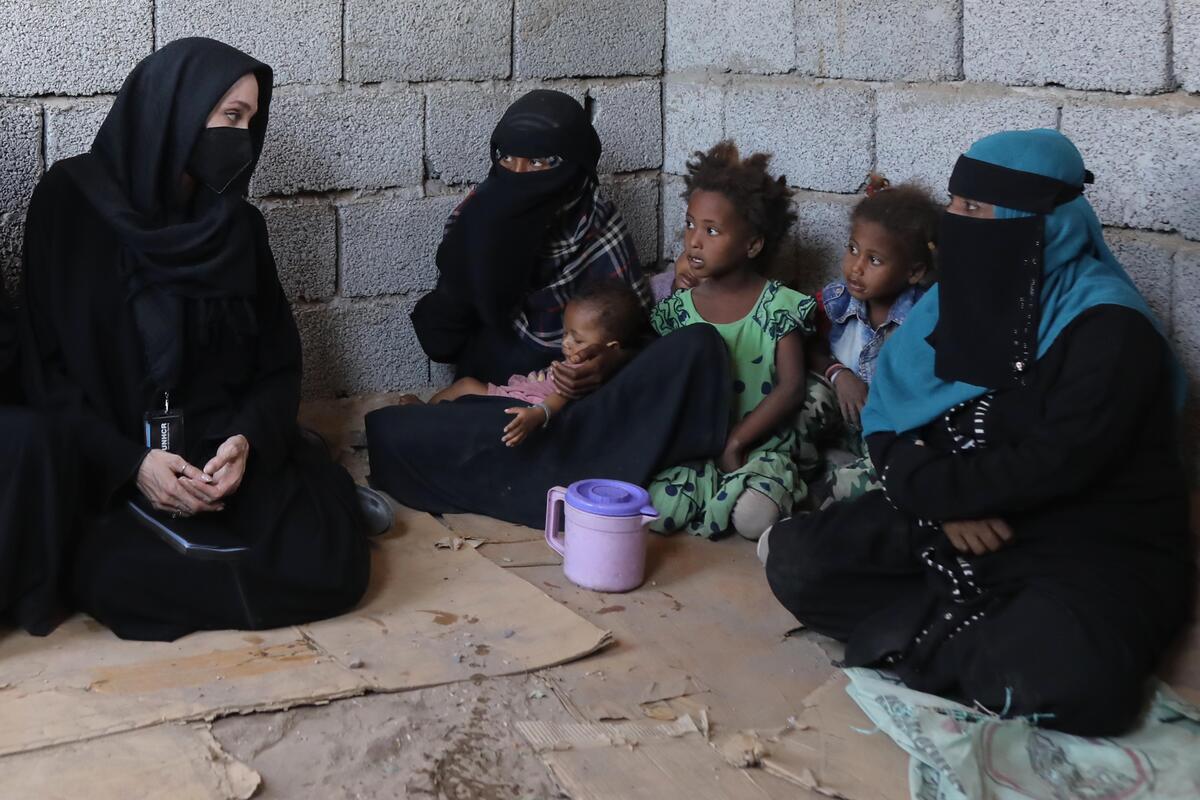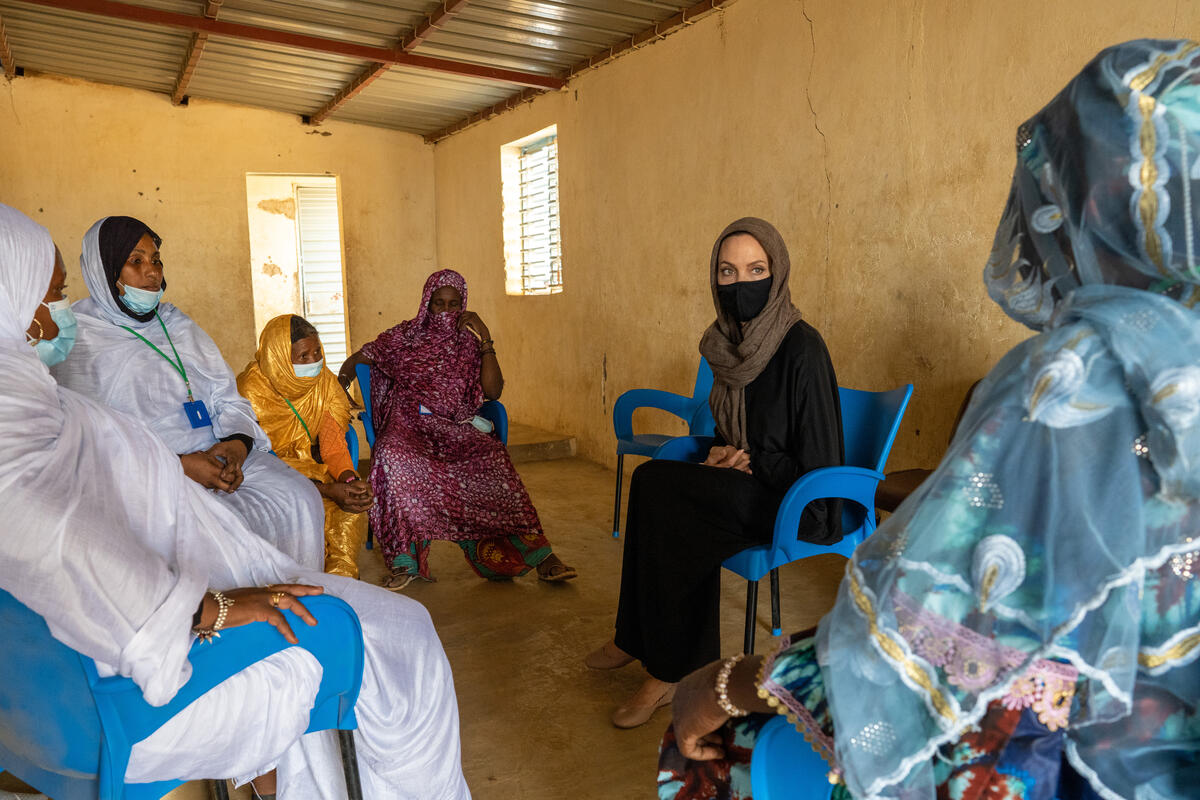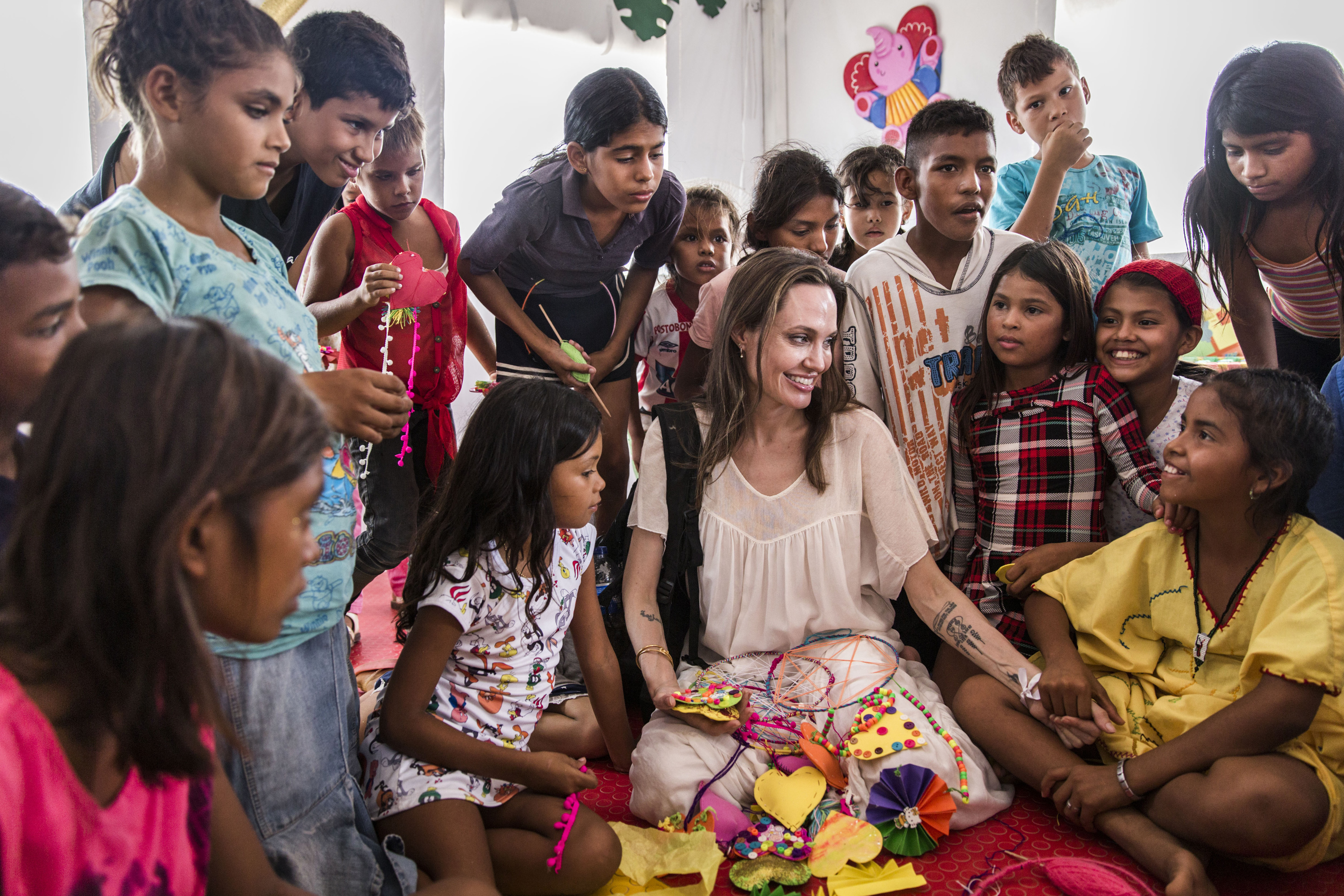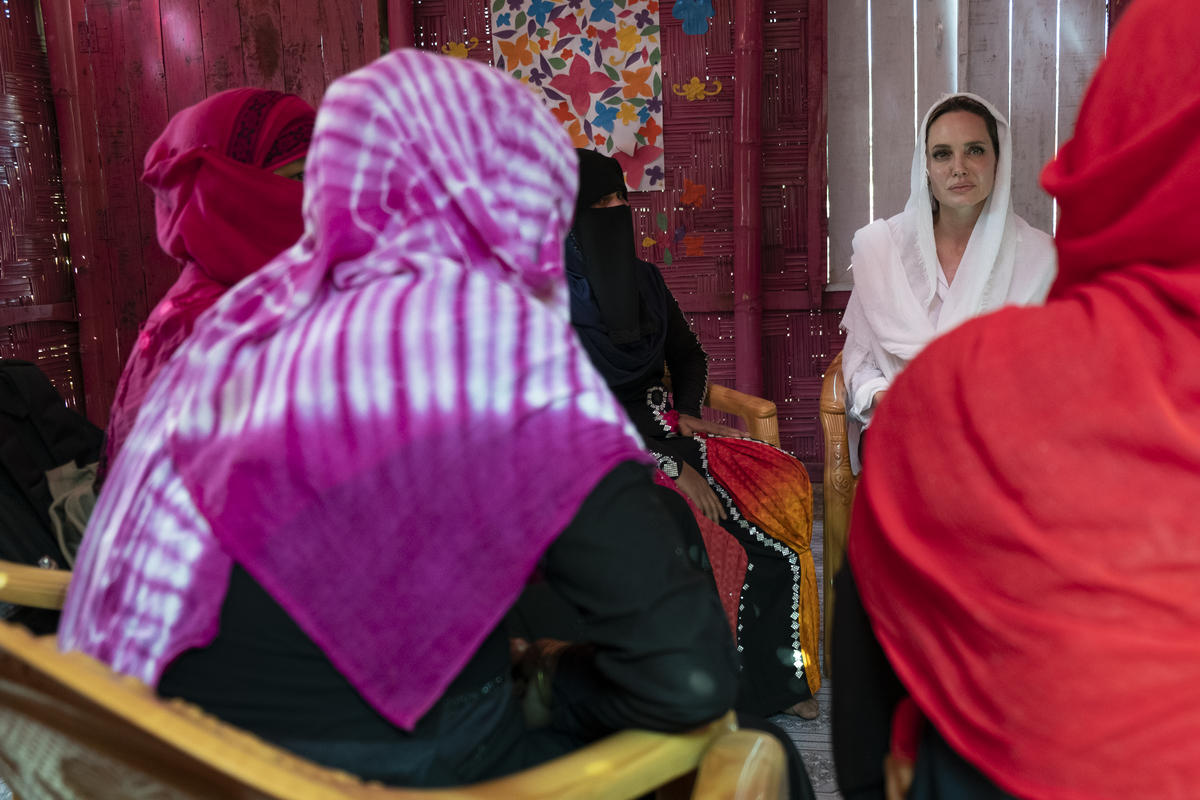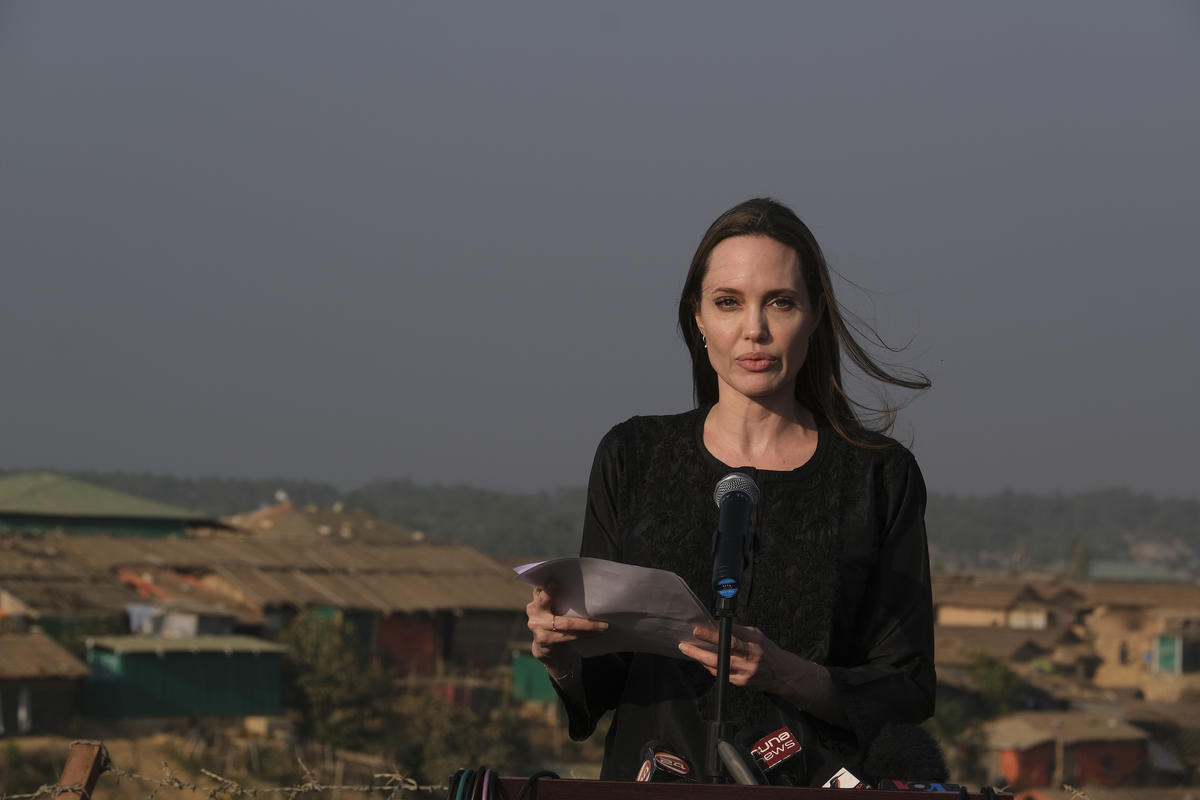Angelina Jolie visits Ecuador on first mission as UNHCR Special Envoy
Angelina Jolie visits Ecuador on first mission as UNHCR Special Envoy

LAGO AGRIO, Ecuador, April 23 (UNHCR) - Angelina Jolie, making her third trip to meet Colombian refugees in Ecuador, has called on the government to keep an open asylum policy and maintain its tradition of helping vulnerable people in need.
She said that "as the 30th anniversary of the 1984 Cartagena Declaration nears, it is time to celebrate the resilience of the displaced people in the region and renew our commitment to laws and policies that offer them protection, safety and a chance for a dignified life." The Cartagena Declaration broadened the refugee definition used in Latin America and offered a new approach to refugee protection and solutions in the region.
Jolie's call came at the weekend, during her first field visit as Special Envoy of High Commissioner António Guterres. She was in Ecuador to assess the situation in urban and rural areas for refugees from Colombia, where almost 50 years of conflict have also left some 4 million people internally displaced.
The Special Envoy met Foreign Minister Ricardo Patiño on Sunday to discuss the protection situation for refugees in Ecuador. Speaking on behalf of UNHCR, she urged the minister to ensure that the Ecuador government maintains its long history of protecting refugees and that people in need of protection can access their rights. They also spoke of obstacles to the implementation of the existing refugee legislation.
Ecuador hosts 56,000 refugees and 21,000 asylum-seekers and receives 1,300 new applications for protection each month from people fleeing neighbouring Colombia's continuing violence. Many live in the remote and poor northern areas of the country close to the border.
Jolie's two-day visit began last Saturday in Lago Agrio, capital of Sucumbios province in the north of the country. She visited the oil town's San Valentin neighbourhood, where more than 60 per cent of the community are refugees living in extreme poverty; some rent houses on land contaminated by a nearby oil well. The broader community is also affected by oil pollution.
In San Valentin, she met young Colombian refugees and Ecuadoreans who were part of a youth group supported by UNHCR. They told her about their tough lives in an area where the young are often targets for recruitment by armed groups and traffickers.
"These young people are so impressive. I was really moved by their determination to improve their community and take it into their own hands," Jolie said. She discussed the situation of the youth of the area with Lago Agrio's Mayor Yofre Poma, who runs a series of school programmes aimed at instilling a sense of responsibility in young people and easing the integration of refugees, who comprise 13 per cent of the town's population.
"Through these programmes the mayor is keeping the culture of tolerance for vulnerable families who have suffered so much violence," Jolie said.
The Special Envoy also visited on Sunday two remote riverside refugee communities in the border area north of Lago Agrio. She returned after two years to the hamlet of Barranca Bermeja on the San Miguel River and met members of the local women's association, which receives UNHCR support.
The refugees spoke about the need to improve access, telling Jolie that under current government regulations they must travel to Lago Agrio in person to renew their refugee documentation. In the absence of a public bus service and good road, this can cost a month's salary - a huge burden.
Refugees in the border areas received their first official identity documents in a registration drive between 2008 and 2010. These have proved critical in regularizing the stay of refugees and helping them to access their rights. But they now face challenges renewing their documents because the government has cut back on the number and operations of mobile registration teams.
Jolie also visited the Providencia community of 24 Afro-Colombian refugee families, some two hours west of Barranca Bermeja by boat. The settlement was established in 1994 by Colombian refugees, but received no outside help until 2008, when UNHCR turned up.
"It is extraordinary that these people were on their own for 14 years," the Special Envoy said. Since making contact with UNHCR, the refugees have been registered and a primary school has been built, but many challenges remain.
"We really feel the isolation; it is really tough," said Plinio, the community president, Providencia can only be reached by hiring a boat, which can take up to three hours to reach from the nearest road and another two hours to town. Refugees struggle with the need to travel to Lago Agrio frequently, given the obstacles they face in renewing their refugee documents. They also struggle to attend to their medical and other basic needs because of their isolation.
Despite the hardships in Providencia, Jolie found the people inspiring. "There is an amazing teacher who is so devoted to his students that he has left Lago Agrio to live in this remote place and teach the refugees, who for the first time have access to education, who have a future,"
The envoy said she was grateful to this teacher and the many other people who have given assistance to these vulnerable families. "Without finding safety in Ecuador, they would most likely not be alive," she said. "Nobody wants to be a refugee, to have to leave their home. Nobody wants to live on borrowed land and to have to beg for a visa every year and not be able to know what their life or their children´s life will be, or whether they can access any jobs or obtain medical help."
She stressed that it was "very important that UNHCR and the government come here and give assistance. But it is also important that we help the local people understand what it is to be a refugee, what they've come from, what they've survived, what their intentions are. And their intentions are simply that they want to be safe and to have a decent life for their family."
Jolie was appointed as Special Envoy of High Commissioner António Guterres earlier this month.
By Ariane Rummery in Lago Agrio, Ecuador







